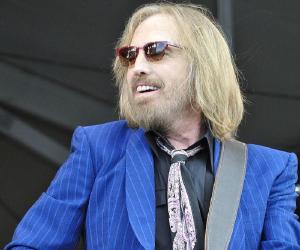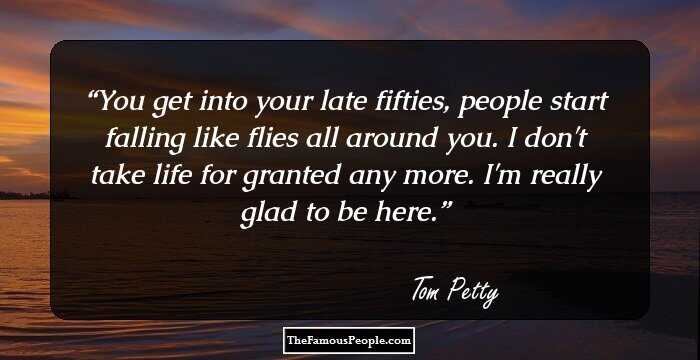
You get into your late fifties, people start falling like flies all around you. I don't take life for granted any more. I'm really glad to be here.
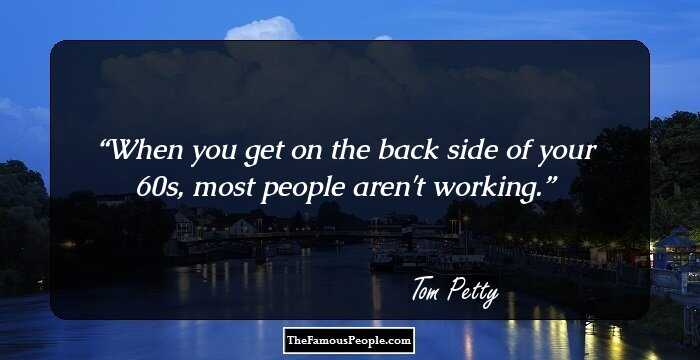
When you get on the back side of your 60s, most people aren't working.
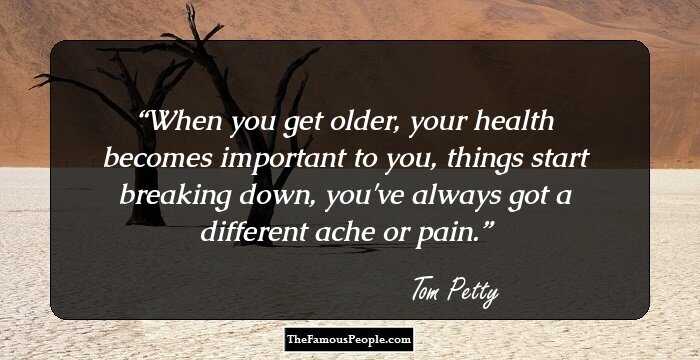
When you get older, your health becomes important to you, things start breaking down, you've always got a different ache or pain.
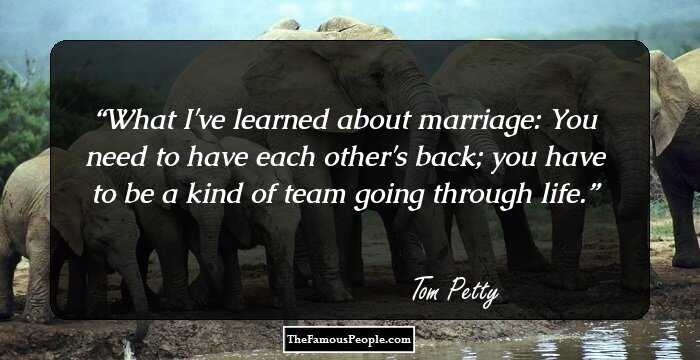
What I've learned about marriage: You need to have each other's back; you have to be a kind of team going through life.
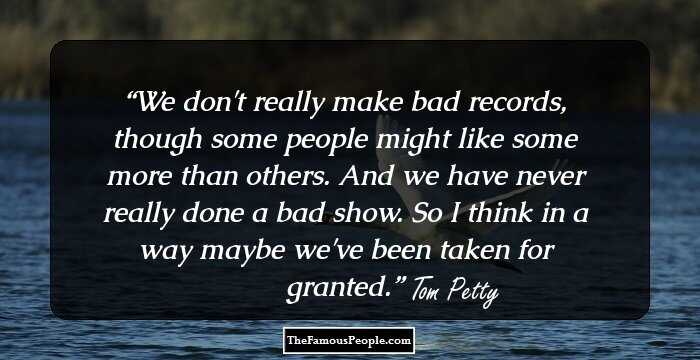
We don't really make bad records, though some people might like some more than others. And we have never really done a bad show. So I think in a way maybe we've been taken for granted.
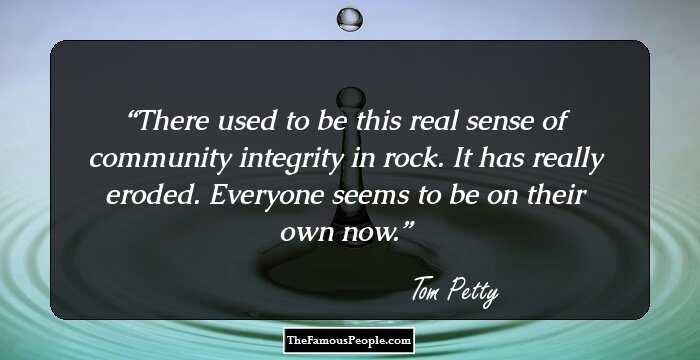
There used to be this real sense of community integrity in rock. It has really eroded. Everyone seems to be on their own now.
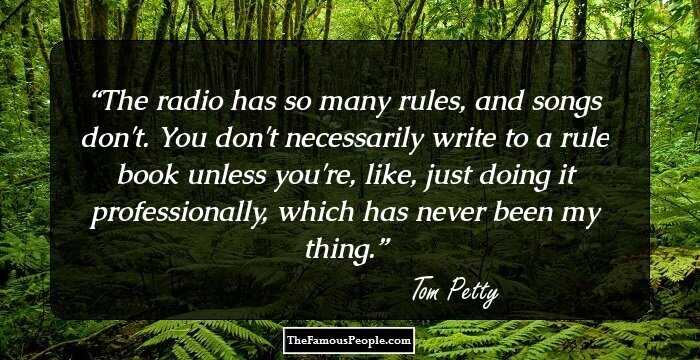
The radio has so many rules, and songs don't. You don't necessarily write to a rule book unless you're, like, just doing it professionally, which has never been my thing.
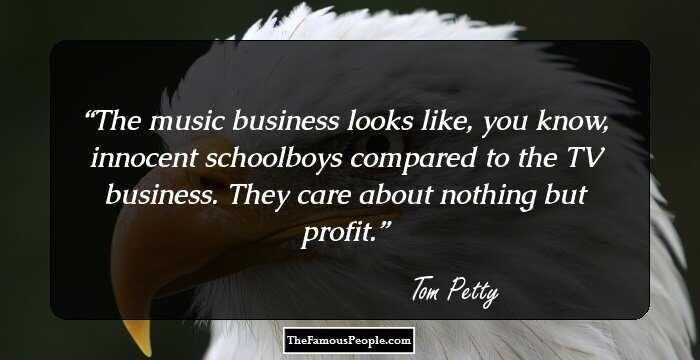
The music business looks like, you know, innocent schoolboys compared to the TV business. They care about nothing but profit.
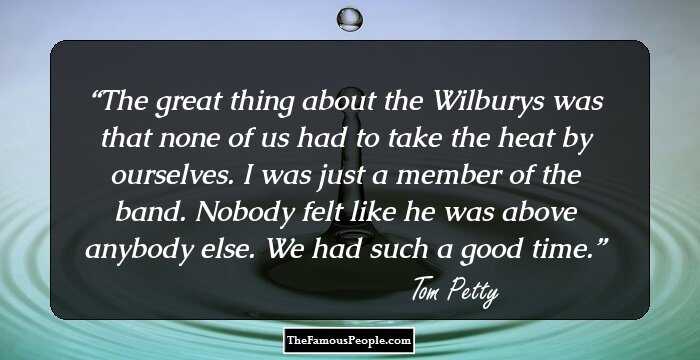
The great thing about the Wilburys was that none of us had to take the heat by ourselves. I was just a member of the band. Nobody felt like he was above anybody else. We had such a good time.
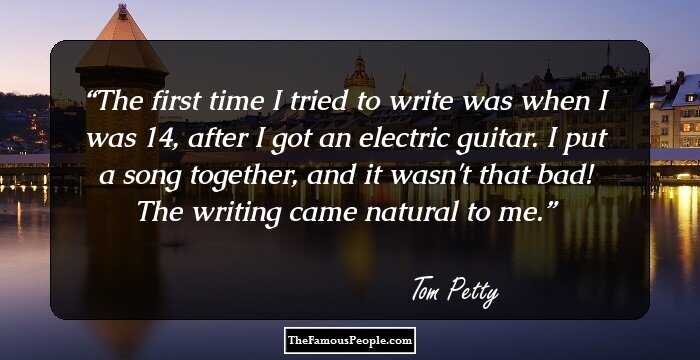
The first time I tried to write was when I was 14, after I got an electric guitar. I put a song together, and it wasn't that bad! The writing came natural to me.
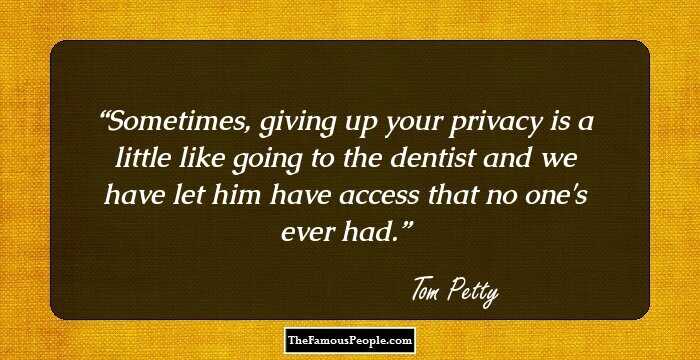
Sometimes, giving up your privacy is a little like going to the dentist and we have let him have access that no one's ever had.
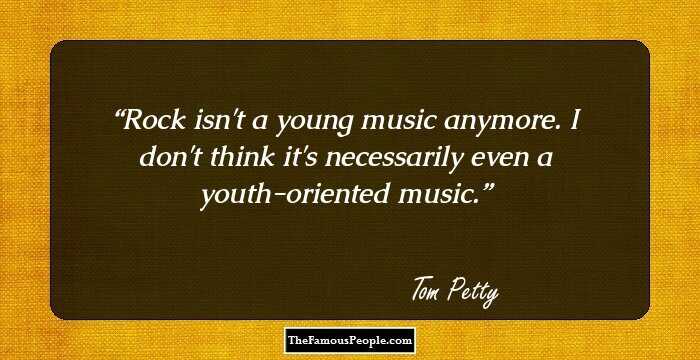
Rock isn't a young music anymore. I don't think it's necessarily even a youth-oriented music.

Music is probably the only real magic I have encountered in my life. There's not some trick involved with it. It's pure and it's real. It moves, it heals, it communicates and does all these incredible things.
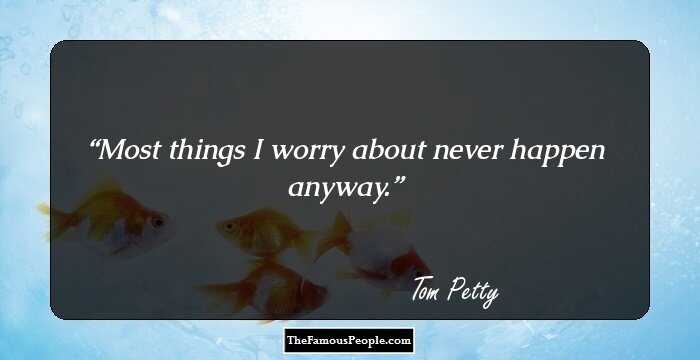
Most things I worry about never happen anyway.
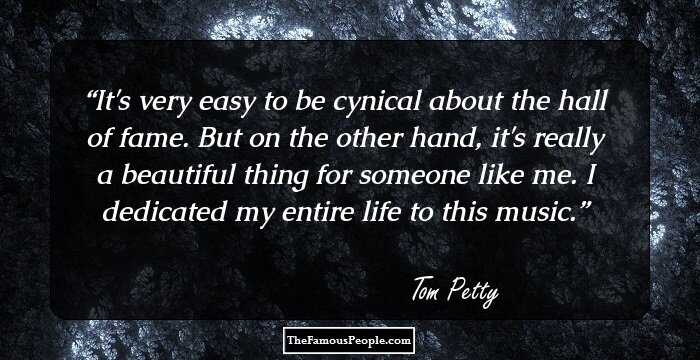
It's very easy to be cynical about the hall of fame. But on the other hand, it's really a beautiful thing for someone like me. I dedicated my entire life to this music.

It's hard for me... If I don't have a project going, I don't feel like I'm connected to anything. I don't even think it's that healthy for me. I like to get out of bed and have a purpose.
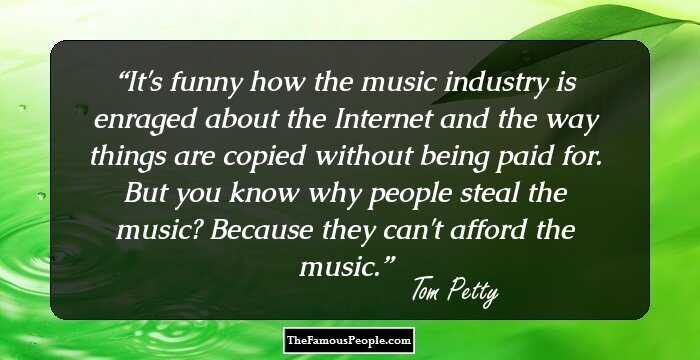
It's funny how the music industry is enraged about the Internet and the way things are copied without being paid for. But you know why people steal the music? Because they can't afford the music.
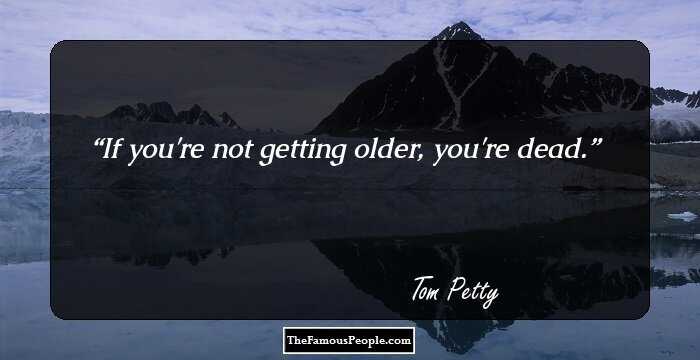
If you're not getting older, you're dead.

I've never had any idea that what I like would resonate with the audience, and I'm pleasantly surprised when it does.
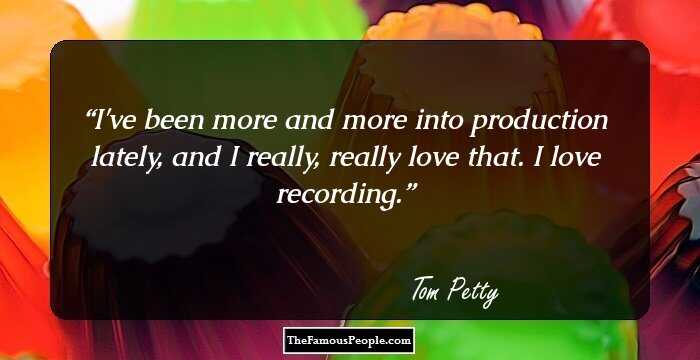
I've been more and more into production lately, and I really, really love that. I love recording.
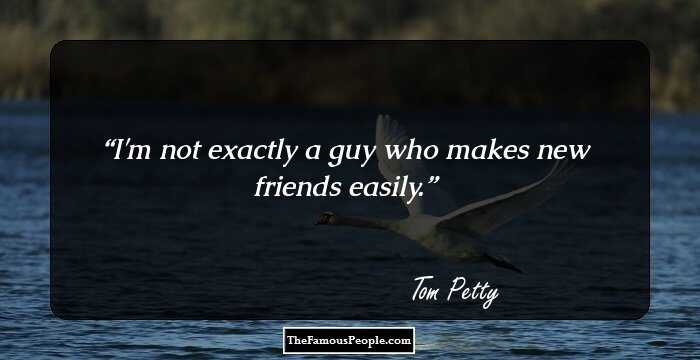
I'm not exactly a guy who makes new friends easily.
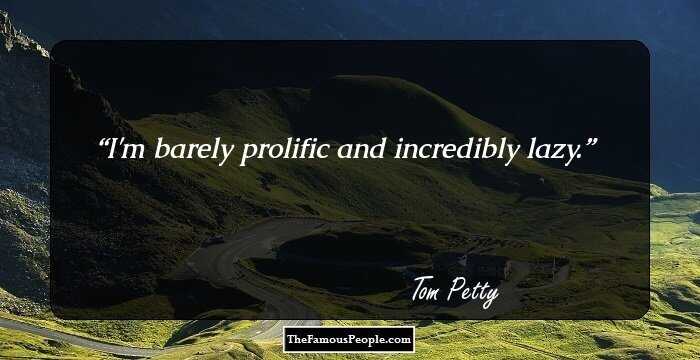
I'm barely prolific and incredibly lazy.
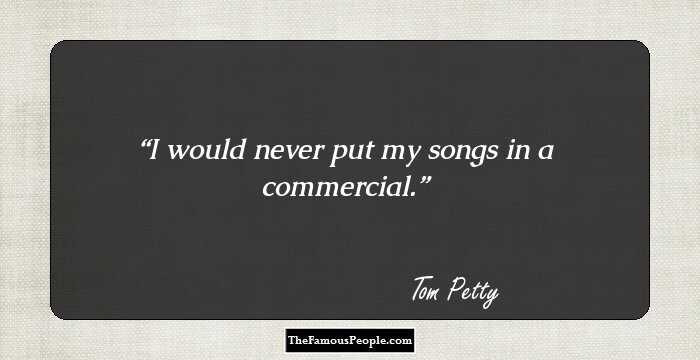
I would never put my songs in a commercial.
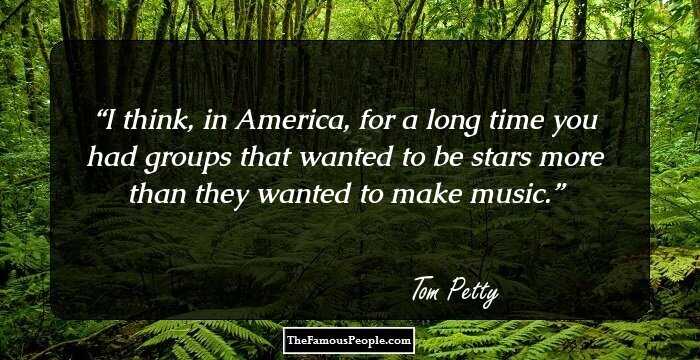
I think, in America, for a long time you had groups that wanted to be stars more than they wanted to make music.
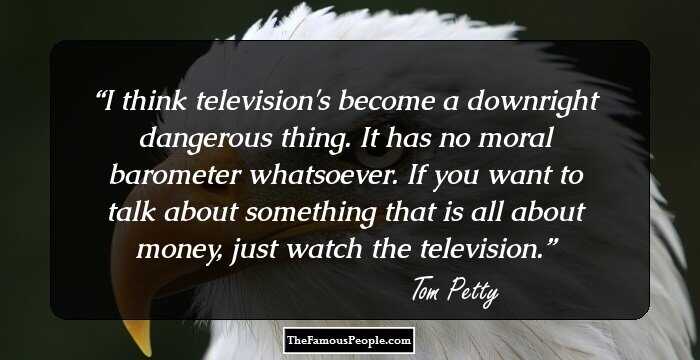
I think television's become a downright dangerous thing. It has no moral barometer whatsoever. If you want to talk about something that is all about money, just watch the television.
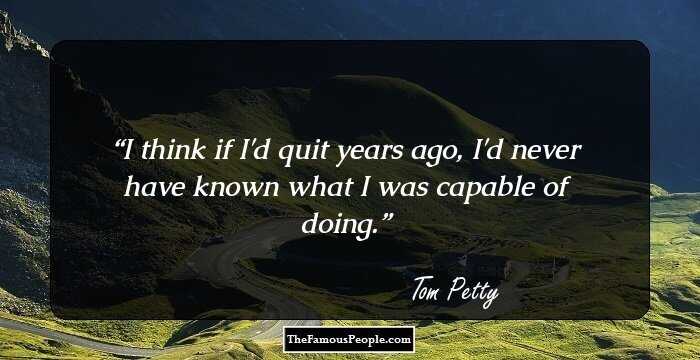
I think if I'd quit years ago, I'd never have known what I was capable of doing.
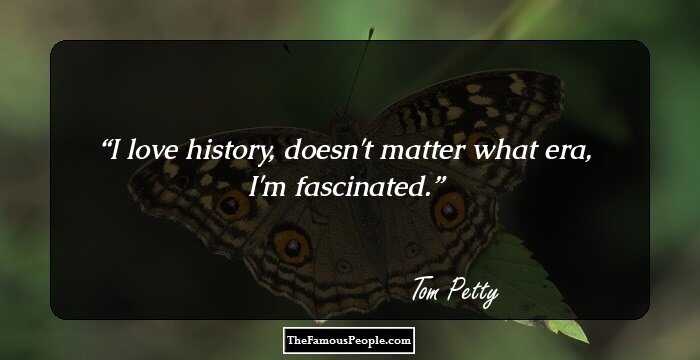
I love history, doesn't matter what era, I'm fascinated.
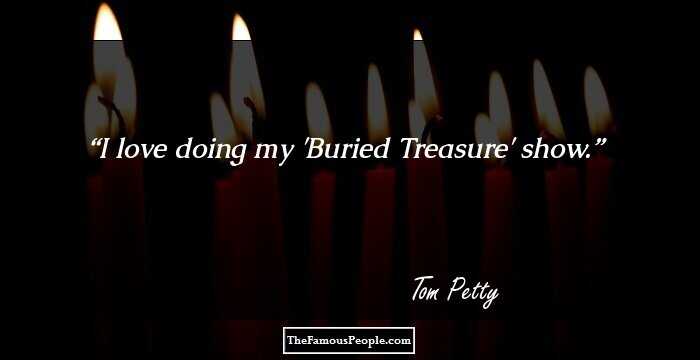
I love doing my 'Buried Treasure' show.

I like to be an optimist, but I like to be a realist, too.
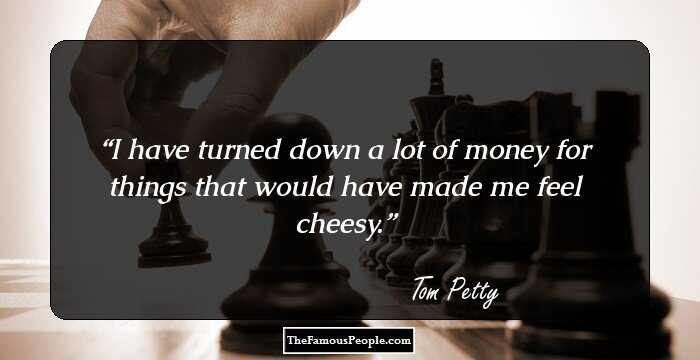
I have turned down a lot of money for things that would have made me feel cheesy.

